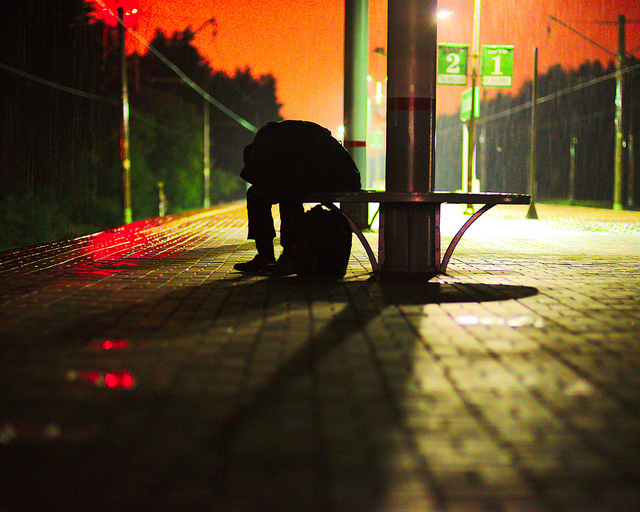Every person has suffered at some point in their life.
Your own suffering may be a consequence of a single life-changing event, or may stem from a build-up of smaller stresses that eat away at your sense of well-being. However it comes to be, suffering is an intrinsic, almost inescapable element of the human experience.
We may think that we can objectively rank some experiences over others in terms of the level of suffering they produce. But, at the end of the day, all suffering is not relative. When you are going through a struggle, your suffering feels as powerful and legitimate as anyone else’s.
What is important is not the event that produced your suffering, but how you respond to that suffering. How will you choose to let it shape your life course?
Do you allow suffering to consume you?
Do you try to outrun suffering?
Or do you face it, accept it and bounce back against it?
Unhealthy reactions to suffering
While there are countless coping mechanisms that we can employ to handle periods of suffering, there are two ways that are particularly unhealthy: avoidance and attachment.
Avoidance
Suffering usually entails feelings of sadness, loss and despair. Often, we have to face up to an unpleasant reality.
Many of us try to outrun the negativity brought on by suffering by engaging in unhealthy behaviours. Substance abuse, overworking, projecting anger onto others or pure denial are all ways in which individuals attempt to cope with (or totally avoid) suffering.
Yes, these tactics can numb you to pain for a while. Yes, pretending a problem doesn’t exist may give you relief in the short term.
But, needless to say, these methods are ultimately unsustainable. Eventually you will be forced to face up to your feelings. The longer you wait to do so, the more traumatic the grieving process will be.
Attachment
On the flipside, there are others who refuse to let go of suffering; who may even actively pursue it. This attachment to suffering is usually an unconscious process, and is complicated by a number of personal and social factors.
Holding on to suffering is often entangled with low self-esteem. If you believe that you aren’t worthy of happiness, you will unconsciously direct your attention toward negativity and dwell on what is bad about your life.
Particularly when you have lost a loved one, letting go of suffering may also be riddled with feelings of guilt. It is easy to believe that you have to maintain sadness in order to honour the person who has passed; as though feeling joy or happiness translates to a betrayal of that person’s memory.
In an increasingly competitive world, suffering may also offer an easy way out. Those who are going through a hard time are usually exempt from social pressures and rules. They are cut slack at work and given extra consideration by friends and family. While we may not be actively aware of it, some people cling to suffering to remain in this comfort zone; to placate their fear of returning to a world of harsh judgement and high expectations.
Regardless of the reason behind it, holding on to suffering is damaging for your well-being – physically and emotionally.
Instead of avoiding suffering or becoming attached to it, we ultimately need to accept the events of the past and find meaning to better our future.
Finding meaning
In times of suffering, we always have a choice.
We can let our experiences define us, or we can acknowledge our suffering and use it to learn more about ourselves.
From suffering we can be reminded to appreciate all that is good in our life and to find happiness in the little things.
Through suffering we can better understand our strengths and weaknesses, and marvel at our own resilience.
By transforming suffering we can forge a new life purpose – we can make a difference.
Just think of the family members of suicide victims who dedicate their lives to raising awareness of mental illness to prevent others from following the same fate.
Even in our darkest times, there is always a way to find meaning in suffering and to choose to change for the better.
Sometimes, we can’t do it on our own. We might need the help of family, friends, counsellors, financial planners, doctors or anyone in between. The difference is whether or not we have the courage to ask for help when we need it; whether or not we actively seek happiness over sadness.
There will be days when you will want to break. There will be weeks where introspection will get the better of you and you will want to crumble and scream and listen to Celine Dion on repeat.
But as long as you keep choosing to fight, you will ultimately triumph. You will make it through your personal suffering and define it, rather than allowing it to define you.



